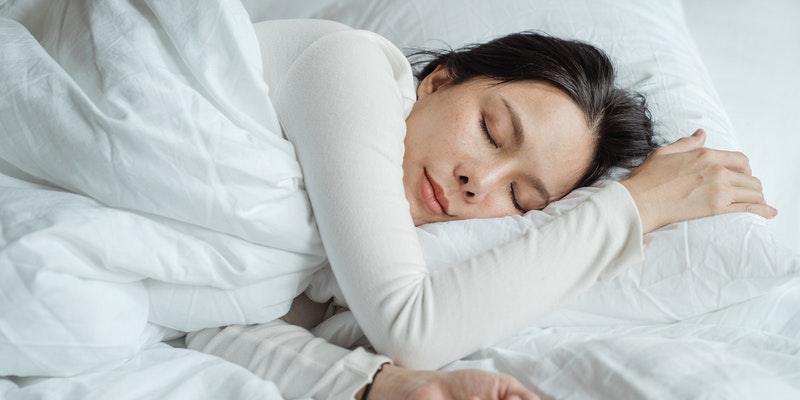
Did you know that around 70 million Americans suffer from insomnia? That means, most of us are dealing with some level of lack of sleep. While some may turn to medicine or even alternative medicine, over time, taking these medicines can leave you feeling groggy the next day, and some people experience troubling side effects like depression or anxiety when they go off their meds. Thankfully, there are plenty of holistic ways to get restful sleep without the use of sleep aids or pharmaceuticals.
A Holistic Guide to Improving Sleep Hygiene
Before you pick up a sleep aid like Tylenol PM or Ambien, consider going an all-natural route. Here are six ways to achieve restful sleep without using any type of medication:
1. Decrease Stress During the Day
Stress is a big detractor to a good night’s sleep. Worrying about an upcoming assignment, exam, or project can make it hard for you to rest as it is hard to get in sleep mode when you are in fight or flight mode. If you think you might have sleep issues due to stress during the day, try meditating for 10 minutes before bed. You may find that you feel more relaxed and ready for bed after just a few nights of meditation.
2. Treat TMJ Disorder
If you have sleep problems, you could be suffering from Temporomandibular Joint (TMJ) disorder. According to TMJ specialists at a New England sleep center, “the most common cause of TMJ is the clenching of the teeth in our sleep.”
Left untreated, it can make it difficult for you to get a good night’s rest. To get relief, visit an orthodontist or TMJ specialist. To treat TMJ, doctors typically give their clients night guards or custom splints on their teeth that provide extra support.
3. Read Before Bed
Consider reading a book before bed to calm the nerves and let the sleepiness settle in. The key is not necessarily doing anything specific before bed, but being mindful of your routine and doing something that doesn’t spike your energy or stress levels. This could mean reading in a calm place while sipping tea instead of watching TV in bed while eating ice cream, for example.
4. Identify Food Sensitivities
There’s an old saying that what you eat can either make or break you. This statement couldn’t be more true when it comes to getting quality sleep at night. While you sleep, your body is hard at work restoring energy levels, repairing muscle tissue, and fighting off toxins in preparation for tomorrow’s events.
When that process is interrupted because of food sensitivities or a poor diet, you end up with restless nights that only create more stress during waking hours. If you feel like your diet may be impacting your sleep habits, think about making some small changes while ensuring you get enough rest each night.
5. Take More Naps
Napping regularly can be the key to a good night’s sleep. The secret to napping isn’t just making sure you catch enough ZZZs during your day; it’s also taking time for yourself during your off-hours. What does that look like?
Anything from getting some extra sleep on weekends to waking up 30 minutes early so you can meditate–whatever works best for you. There is no one-size-fits-all solution when it comes to napping so be sure to make time for relaxation will help put your mind and body in an optimal place before bedtime rolls around again.
6. Avoid Stimulants Before Bedtime
If you’re not falling asleep as you should it may be time to cut out stimulants. Even if your sleep problems aren’t due to insomnia, coffee and other caffeinated beverages can aggravate your condition. If you’re having trouble sleeping at night, give up coffee and all other stimulants for a week or two and see if it makes a difference.
These days, we’re constantly on the go and it’s easy to let stress and anxiety creep into our lives. As a result, we may be inclined to reach for sleeping pills or other sleep aids to help us get through the night and feel refreshed in the morning, but this is not always the best approach. Keep these holistic methods in mind as you try to achieve restful sleep without relying on medicine.


